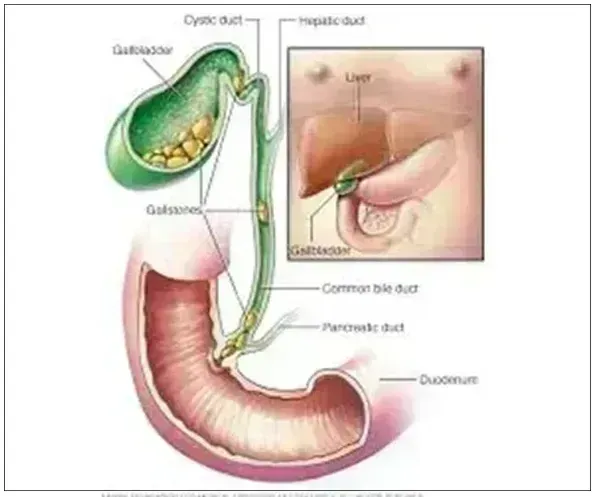

Gall Stones
The gallbladder is a small, pear-shaped organ that is tucked under your liver. It stores bile, a fluid that helps the body break down fat.

Gallstones are small stones that form inside the gallbladder. They can be tiny specks or get as big as the whole gallbladder, which can be up to 6 inches long.
Normally, the gallbladder fills with bile in between meals. Then, when you eat fatty foods, the gallbladder empties the bile into the intestine.
Sometimes, though, gallstones clog the gallbladder and keep it from draining. Other times, gallstones just irritate the gallbladder.
If the gallstones are pushed out of the gallbladder, they can keep the liver or pancreas from draining.
In most cases, gallstones do not cause any symptoms. When they do cause symptoms, gallstones can cause:
If you know that you have gallstones but have no symptoms, you probably will not need treatment. But if you start having symptoms, you should get treated. The symptoms can come and go, but they often get worse over time.
Not usually. In some cases they can lead to serious problems, including:
Yes, doctors can find out if you have gallstones by doing an imaging test, such as an ultrasound. An ultrasound is a painless test that uses sound waves to create a picture of your gallbladder.
Even if tests show that you have a gallstone that does not mean they are causing symptoms. Your doctor might need to do other tests to make sure your stones and your symptoms are related.
People with gallstones generally have 3 treatment options. They can have:
The right treatment for you will depend on:
Ask your doctor or nurse how each treatment might affect you. Then work with them to find the treatment that makes the most sense for you.
Yes. You can try to keep yourself at a healthy weight. People who are overweight are more likely to get gallstones.
If you plan to lose weight quickly – even if you have never had gallstones – ask your doctor or nurse what you can do to keep from getting gallstones. Losing weight quickly – for example, through weight loss surgery – can lead to gallstones. But your doctor or nurse can give you medicines to keep that from happening.